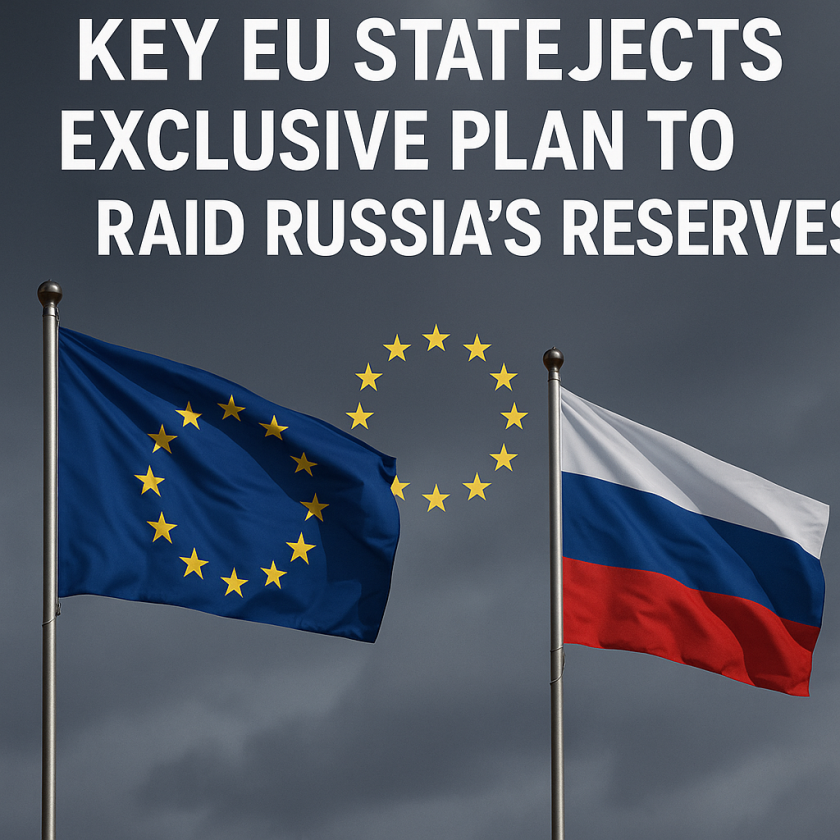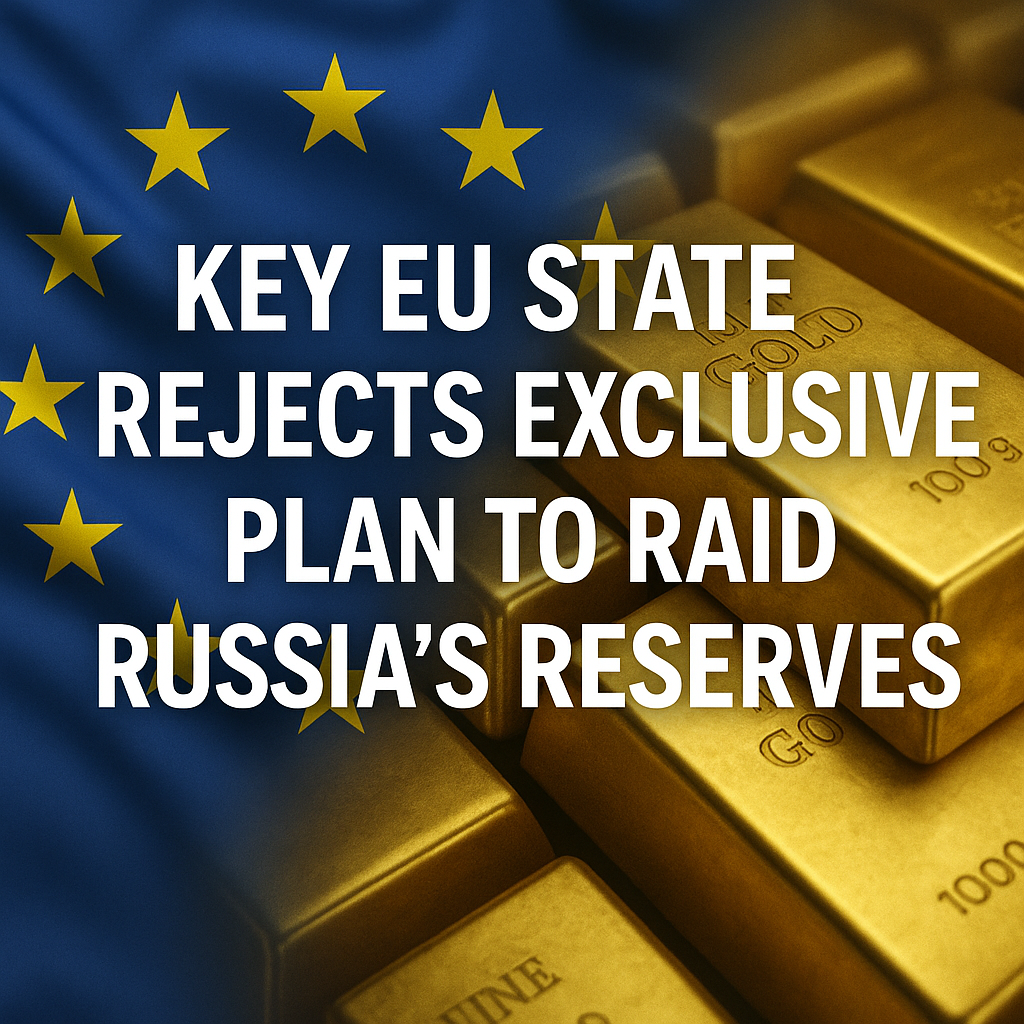Key EU State Rejects Exclusive Plan to Raid Russia’s Reserves
Key EU State Rejects Exclusive Plan to Raid Russia’s Reserves
In a significant turn of events, Belgium has rejected an exclusive European Union plan to confiscate Russian assets to aid Ukraine. This development encapsulates a complex interplay of international law, political implications, and ethical considerations, highlighting the differing perspectives within the EU regarding how to respond to the ongoing conflict in Ukraine.
Divergent Perspectives on Asset Confiscation

Belgium’s decision not to support the EU’s plan to exclusively raid Russian reserves has resonated with varying opinions among member states and experts alike. Advocates of the plan argue that using frozen Russian assets to finance Ukraine’s defense presents an urgent solution to the ongoing humanitarian crisis exacerbated by the war. They contend that it’s not just a practical measure but also a moral obligation to support a nation under siege.
However, Belgium’s stance, which reflects an adherence to legal frameworks and potential long-term consequences, highlights the fragile consensus within the EU. Belgian officials pointed out concerns regarding the legality of such measures, emphasizing that unilateral actions without a clear international legal basis could set a troubling precedent not only for Russia but also for member states’ rights to property.
Legal Ramifications and International Law
One significant argument against the asset raiding plan is rooted in international law. Legal experts warn that the confiscation of foreign assets poses serious legal risks, potentially violating principles established by treaties designed to protect property rights. This is particularly concerning in a climate where legal frameworks are often viewed as sacrosanct. The fear is that disregarding these principles can damage Europe’s international standing and encourage reciprocal actions from other countries, potentially destabilizing global trade relations.
Belgium’s government points to the potential consequences of violating these principles. Drawing attention to past incidents where countries had their assets seized, Belgian officials underscored concerns that this could lead to retaliatory actions against European firms and interests abroad. Such views resonate with experts who believe that diplomatic channels should be prioritized over punitive measures that may escalate tensions.
Ethical Considerations and Humanitarian Aid
Another layer to this debate lies in the ethical implications of asset confiscation. Many advocates for utilizing Russian reserves argue that the act of supporting Ukraine in its time of need outweighs the legal and diplomatic concerns. They assert that the devastation wrought by the war necessitates immediate action and that funding for humanitarian aid can’t be delayed by procedural complications.
On the other hand, Belgian officials have articulated the need for caution. They stress that while humanitarian needs are pressing, the means of addressing those needs must uphold international standards. The Belgian position presents a philosophical dilemma: Can moral imperatives justify the circumvention of legal norms? This question has stirred significant debate among international relations experts and policymakers within the EU.
A World of Uncertainty Ahead
In light of Belgium’s refusal, the future of the EU’s cohesive response to the conflict in Ukraine remains uncertain. The EU could consider alternative methods to support Ukraine, such as increasing humanitarian aid or facilitating trade agreements that may help bolster Ukraine’s economy without violating legal frameworks. However, the continuous presence of frozen Russian assets presents a tantalizing opportunity that may be difficult for other member states to overlook.
As the EU grapples with both ethical duties and legal boundaries, it’s evident that the discourse surrounding this issue will evolve. Different member states have historically had differing stances on Russia, with some more supportive of punitive measures than others. The EU must navigate this delicate political landscape carefully, bearing in mind both legal obligations and the humanitarian crises that emerge from conflict.
In conclusion, Belgium’s rejection of the exclusive plan to raid Russia’s reserves adds a nuanced layer to the ongoing dialogue about Europe’s role in the Ukraine conflict. By emphasizing the importance of legality and moral consistency, Belgium invites EU members to reflect on their strategies holistically. As discussions continue, a consensus may emerge that balances the urgent need for aid with adherence to international legal norms, ensuring a more considered approach to one of the most pressing crises of our time.




































